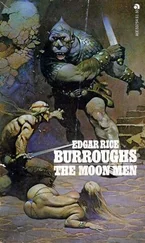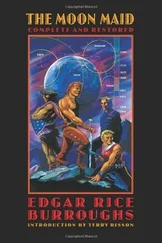Edgar Burroughs - The Red Hawk
Здесь есть возможность читать онлайн «Edgar Burroughs - The Red Hawk» весь текст электронной книги совершенно бесплатно (целиком полную версию без сокращений). В некоторых случаях можно слушать аудио, скачать через торрент в формате fb2 и присутствует краткое содержание. Жанр: Боевая фантастика, на английском языке. Описание произведения, (предисловие) а так же отзывы посетителей доступны на портале библиотеки ЛибКат.
- Название:The Red Hawk
- Автор:
- Жанр:
- Год:неизвестен
- ISBN:нет данных
- Рейтинг книги:3 / 5. Голосов: 1
-
Избранное:Добавить в избранное
- Отзывы:
-
Ваша оценка:
- 60
- 1
- 2
- 3
- 4
- 5
The Red Hawk: краткое содержание, описание и аннотация
Предлагаем к чтению аннотацию, описание, краткое содержание или предисловие (зависит от того, что написал сам автор книги «The Red Hawk»). Если вы не нашли необходимую информацию о книге — напишите в комментариях, мы постараемся отыскать её.
The Red Hawk — читать онлайн бесплатно полную книгу (весь текст) целиком
Ниже представлен текст книги, разбитый по страницам. Система сохранения места последней прочитанной страницы, позволяет с удобством читать онлайн бесплатно книгу «The Red Hawk», без необходимости каждый раз заново искать на чём Вы остановились. Поставьте закладку, и сможете в любой момент перейти на страницу, на которой закончили чтение.
Интервал:
Закладка:
Squatted upon the floor of the chamber, his back leaning against the wall, was a Kalkar. He glanced up at me as I entered, but said nothing. I looked about the bare chamber, its floor littered with the dust and debris of ages, its walls stained by the dirt and grease from the bodies that had leaned against it, to the height of a man.
I approached one of the apertures in the front wall. Far below me, like a narrow buckskin thong, lay the trail filled with tiny people and horses no bigger than rabbits. I could see the pigs rooting in the filth-they and the dogs are the scavengers of the camp.
For a long time I stood looking out over what was to me a strange landscape. The tent in which I was confined was among the highest of the nearer structures of the ancients and from its upper floor I could see a vast expanse of tent roofs, some of the structures apparently in an excellent state of preservation, while here and there a grass-grown mound marked the site of others that had fallen.
Evidences of fire and smoke were numerous, and it was apparent that whatever the ancients had built of other materials than their enduring stone had long since disappeared, while many of the remaining buildings had been eaten by flame and left mere shells, as was attested by hundreds of smoke blackened apertures within the range of my vision.
As I stood gazing out over the distant hills beyond the limits of the camp I became aware of a presence at my elbow. Turning I saw that it was the Kalkar whom I had seen sitting against the wall as I entered the chamber.
“Look well Yank,” he said, in a not unpleasant voice, “for you have not long to look.” He was smiling grimly. “We have a wonderful view from here,” he continued; “on a clear day you can see the ocean and the island.”
“I should like to see the ocean,” I said.
He shook his head. “You are very near,” he said, “but you will never see it. I should like to see it again myself, but I shall not.”
“Why?” I asked.
“I go with you to the butcher in the morning,” he replied simply.
“You?”
“Yes, I.”
“And why?”
“Because I am a true Or-tis,” he replied.
“Why should they send an Or-tis to the butcher?” I demanded. “It is not strange that an Or-tis should send me, the Julian, to him; but why should an Or-tis send an Or-tis?”
“He is not a true Or-tis who sends me,” replied the man, and then he laughed.
“Why do you laugh?”
“Is it not a strange joke of fate,” he cried, “that sees the Julian and the Or-tis going to the butcher together? By the blood of my sires! I think our feud be over, Julian, at least so far as you and I are concerned.”
“It can never be over Kalkar,” I replied.
He shook his head. “Had my father lived and carried out his plans I think it might have ended,” he insisted.
“While an Or-tis and a Julian lived? Never!”
“You are young, and the hate that has been suckled into you and yours from your mothers’ breasts for ages runs hot in your veins; but my father was old and he saw things as few of my kind, I imagine, ever have seen them. He was a kindly man and very learned and he came to hate the Kalkars and the horrid wrong the first Or-tis did the world and our people when he brought them hither from the Moon, even as you and yours have hated them always. He knew the wrong and he wished to right it.
“Already he had planned means whereby he might get into communication with the Julians and join with them in undoing the crime that our ancestor committed upon the world. He was Jemadar, but he would have renounced his throne to be with his own kind again. Our blood strain is as clear as yours-we are American. There is no Kalkar or half-breed blood in our veins. There are perhaps a thousand others among us who have brought down their birthright unsullied. These he would have brought with him, for they all were tired of the Kalkar beasts.
“But some of the Kalkar nobles learned of the plan and among them was he who calls himself Or-tis and Jemadar. He is the son of a Kalkar woman by a renegade uncle of mine. There is Or-tis blood in his veins, but a drop of Kalkar makes one all Kalkar, therefore he is no Or-tis.
“He assassinated my father and then set out to exterminate every pure-blood Or-tis and all those other uncontaminated Americans who would not swear fealty to him. Some have done so to save their hides, but many have gone to the butcher. Insofar as I know, I am the last of the Or-tis line. There were two brothers and a sister, all younger than I. We scattered and I have not heard of them since, but I am sure that they are dead. The usurper will not tell me-he only laughed in my face when I asked him.
“Yes, if my father had lived the feud might have been ended; but to-morrow the butcher will end it. However, the other way would have been better. What think you, Julian?”
I stood meditating in silence for a long time. I wondered if, after all, the dead Jemadar’s way would not have been better.
5
The Sea
It seemed strange indeed to me that I stood conversing thus amicably with an Or-tis. I should have been at his throat, but there was something about him that disarmed me, and after his speech I felt, I am almost ashamed to say, something of friendliness for him.
He was an American after all, and he hated the common enemy. Was he responsible for the mad act of an ancestor dead now nearly four hundred years? But the hate that was almost a part of my being would not down entirely-he was still an Or-tis. I told him as much.
“I do not know that I can blame you,” he said; “but what matters it? To-morrow we shall both be dead. Let us at least call a truce until then.”
He was a pleasant-faced young fellow, two or three years my senior, perhaps, with a winning way that disarmed malice. It would have been very hard to have hated this Or-tis.
“Agreed!” I said, and held out my hand. He took it and then he laughed.
“Thirty-four ancestors would turn over in their graves if they could see this!” he cried.
We talked there by the opening for a long time, while in the trail below us constant streams of Kalkars moved steadily to the battlefront. Faintly, from a great distance, came the booming of the drums.
“You beat them badly yesterday,” he said. “They are filled with terror.”
“We will beat them again to-day and to-morrow and the next day until we have driven them into the sea,” I said.
“How many warriors have you?” he asked.
“There were full twenty-five thousand when we rode out of the desert,” I replied proudly.
He shook his head dubiously. “They must have ten or twenty times twenty-five thousand,” he told me.
“Even though they have forty times twenty-five thousand we shall prevail,” I insisted.
“Perhaps you will for you are better fighters; but they have so many youths growing into the warrior class every day. It will take years to wear them down. They breed like rabbits. Their women are married before they are fifteen, as a rule. If they have no child at twenty they are held up to scorn and if they are still childless at thirty they are killed, and unless they are mighty good workers they are killed at fifty anyhow-their usefulness to the State is over.”
Night came on. The Kalkars brought us no food or water. It became very dark. In the trail below and in some of the surrounding tents flares gave a weird, flickering fight. The sky was overcast with light clouds. The Kalkars in the avenue beyond our doorway dozed. I touched the Or-tis upon the shoulder where he lay stretched beside me on the hard floor.
“What is it?” he whispered.
“I am going,” I said. “Do you wish to come?”
He sat up. “How are you going?” he demanded, still in a low whisper.
Читать дальшеИнтервал:
Закладка:
Похожие книги на «The Red Hawk»
Представляем Вашему вниманию похожие книги на «The Red Hawk» списком для выбора. Мы отобрали схожую по названию и смыслу литературу в надежде предоставить читателям больше вариантов отыскать новые, интересные, ещё непрочитанные произведения.
Обсуждение, отзывы о книге «The Red Hawk» и просто собственные мнения читателей. Оставьте ваши комментарии, напишите, что Вы думаете о произведении, его смысле или главных героях. Укажите что конкретно понравилось, а что нет, и почему Вы так считаете.








